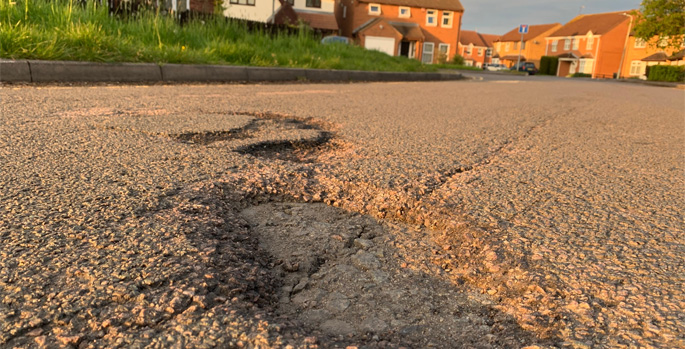The AA has argued that the summer heat could be exacerbating issues with potholes by weakening road surfaces after a spike in pothole-related callouts.
According to the organisation’s Pothole Index for last month, there was a ‘clear spike’ in incidents the AA attended that were caused by potholes when compared to the same period in 2024.
The pothole index showed that this July, the AA dealt with 50,091 incidents caused by potholes, compared to 49,081 last year, marking an increase of just over 2%.
The AA stated that the hotter weather this summer has contributed to a ‘surge’ in pothole incidents, reversing positive trends that had seen pothole-related callouts decrease earlier in the year.
Whilst higher temperatures have been shown to weaken road surfaces and increase the impact of tyre damage to roads, the AA also highlighted other contributing factors:
- Increased road trips on unfamiliar rural roads, which often receive lower priority for repairs.
- Higher temperatures making worn or damaged tyres more susceptible to failure.
- Heat stress worsening already weakened road surfaces.
The Pothole Partnership, which includes the AA, along with JCB, British Cycling, the National Motorcyclists Council and other supporting organisations, stressed that ‘the combined impact of extreme weather and neglected infrastructure places all road users at heightened risk’.
Edmund King, AA president, said: ‘This summer’s heatwave has starkly exposed the fragility of Britain’s roads.
‘The recent setback illustrates that much more must be done to create a safe and reliable road network for everyone. We urge the government and local authorities to redouble their efforts in tackling the pothole crisis, prioritising rural routes and frequently used cycling and motorcycling corridors.’
Caroline Julian, brand and engagement director at British Cycling, added: ‘The increasing number of incidents highlights the growing danger to people who are already choosing to ride bikes, as well as acting as a deterrent to people who might be interested in taking cycling up for fun or fitness.'
Ben Rawding, general manager at JCB, said: ‘While funding plays a vital role, it’s innovation that enables us to do more with the resources already available.
‘Moving away from short-term fixes is essential if we’re to make meaningful and lasting progress.’
David Giles, chair of the Asphalt Industry Alliance (AIA), said: ‘We ask a lot from our aging local roads – from rising traffic volumes, to dealing with a wide range of temperatures and weather conditions, including this summer’s heatwaves. But network resilience is declining due to long-term underfunding, with today’s figures highlighting the impact this can have on road users, particularly on unclassified roads.'
Image credit: Shutterstock @Corner Photography






